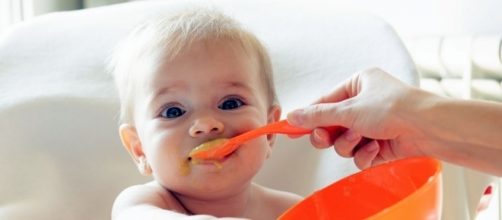Lead is a dangerous mineral when it is ingested by humans and can have detrimental effects, especially in children. A recent study reveals that around 20 percent of all baby foods contain traces of the heavy metal. According to the NCBI, lead can be particularly damaging to a child’s cognitive functions even when very small amounts are ingested. The study's results are shocking and will possibly make parents reluctant to feed their ward baby food.
Lead infused baby foods
The study was performed by the EDF or Environmental Defense Fund, and it analyzed 2,000 food samples between 2003 and 2013.
The results revealed that one out of every five baby food samples contained some traces of the metal. About 14 percent of non-baby foods showed signs of lead contamination as well. However, lead is a naturally occurring element.
The researchers revealed that 89 percent of grape juice samples contained lead traces, while 55 percent of apple juice samples also showed traces of the element. In case of sweet potatoes, lead was found in 86 percent of samples. The scientists did not reveal the name of the brands on which the tests were conducted.
The Centers for Disease Control and Prevention states that no amount of lead can be considered safe for children. So although, the traces found were very low, it is still dangerous for kids.
The Environmental Protection Agency stated earlier this year that more than 5 percent of the children consumed over 6 micrograms of lead each day, which is the daily intake limit for adults. This limit has been set by the Food and Drug Administration in 1993.
FDA guidelines
Researchers were especially surprised to see higher lead traces in baby fruit juices than their adult counterparts. Tom Neltner, who is the chemical policy director for the Environmental Defense Fund expressed his shock at these results and claimed that baby fruit juices may have more lead traces due to the extra processing that they go through.
The FDA has assigned strict limitations to the amount of lead that is permissible in edibles.
For instance, the administration restricts lead to 100 parts per billion or ppb for dried fruits and candy. That number is limited to 50 ppb for fruit juices and 5 ppb for bottled water. The FDA is also working toward reducinglead levels, especially in baby food products.
Researchers were concerned that their study results would be misconstrued by parents. Scientists worried that parents would stop or restrict their child from being fed healthy fruits and root vegetables as a result of the study. They advised that in terms of these foods, the nutritional benefits far outweighed the risks.


